Open Science Community Nijmegen survey 2019
Before organising activities in support of open scholarship, we asked academics in Nijmegen about thier experience with open science practices - what they were already familiar with, what they would like to learn, and so on. Here is an overview of the most important findings.
Participant demographics
Career stage
We received responses from people in different stages of their academic career.
(n = 281)
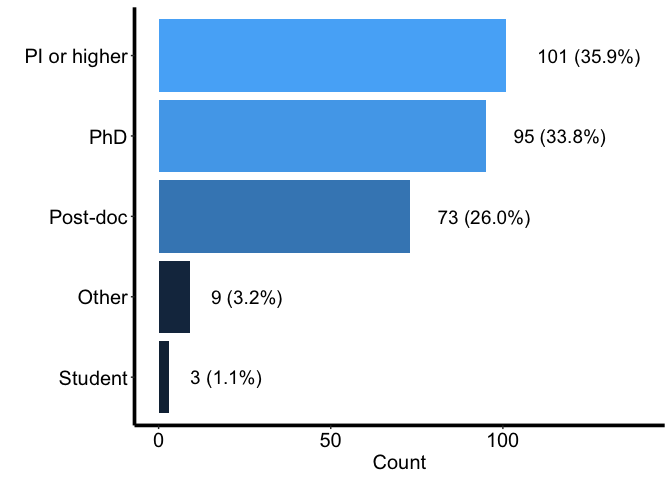
Affiliation
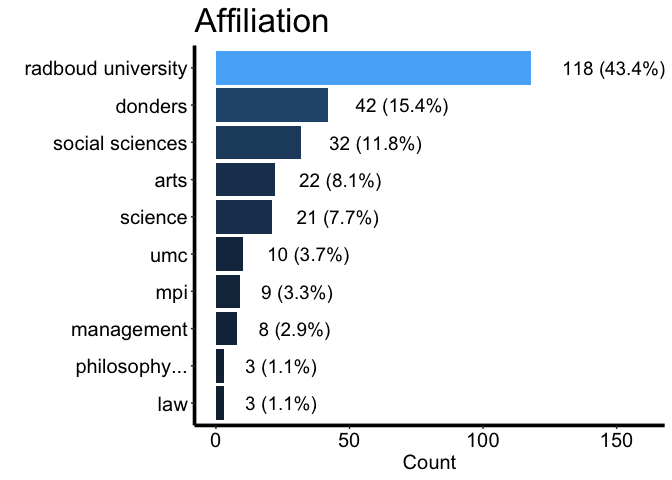
Research field
We would have liked to hear from people from different research fields. But we will continue to gather information offline too.
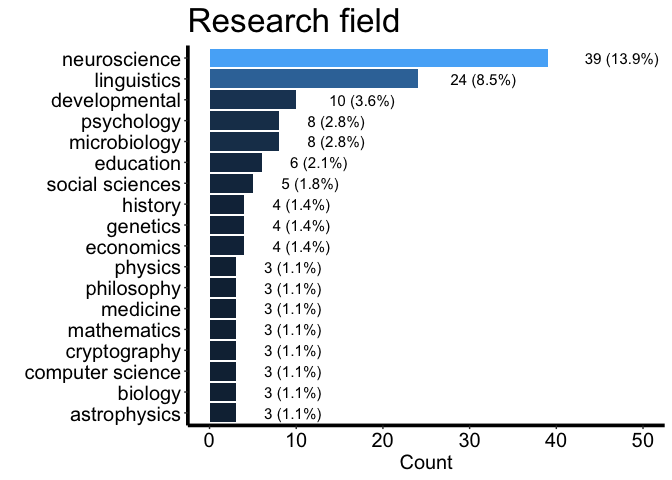
Keywords
What main keywords do you associate with “open science”?
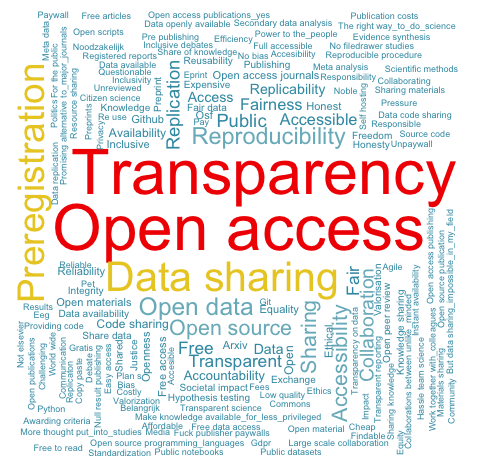
Components of Open Science
Perceived importance of specific Open Science components.
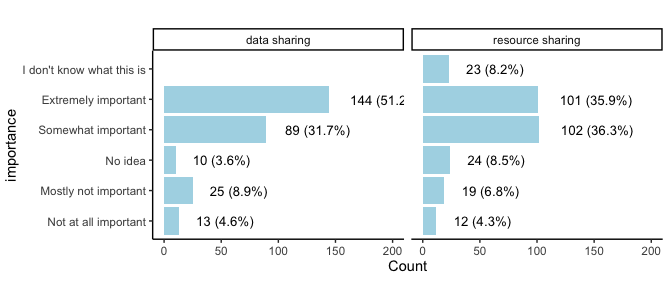
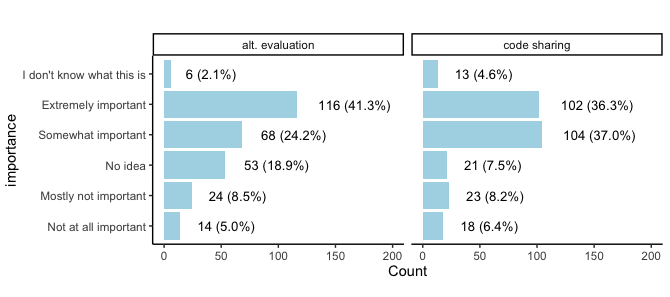
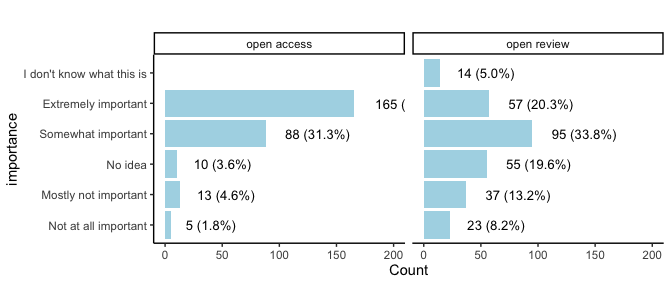
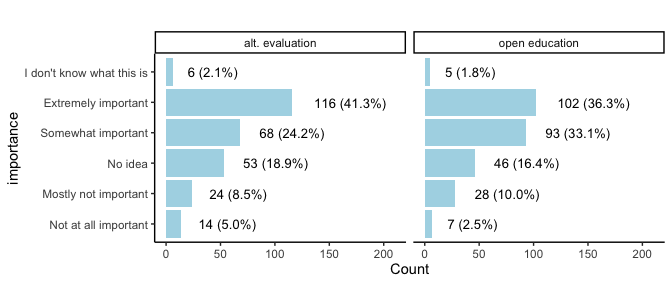
Experience with OS
Have you ever requested data?

Why did you request the data?
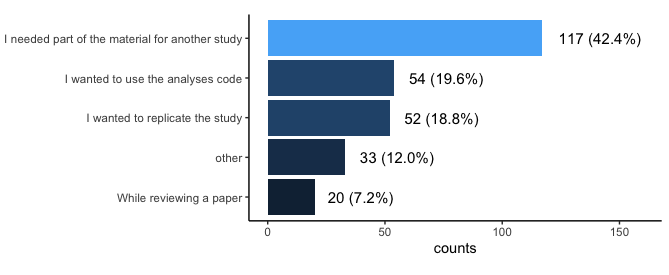
Have you ever practiced any of the following open scholarship practices?
- data sharing: made your data (or data tables) publicly available
- materials sharing: made your materials (experimental stimuli, scripts, etc.) publicly available
- data reuse: used or analysed publicly available data or materials from someone else
- preregistration: preregistered a study
- direct replication: directly replicated findings (i.e. ran the exact same study, of yours or that of someone else, again
- open access publishing: publish strictly open access (includes hybrid, green, gold…)
- no: none of the above
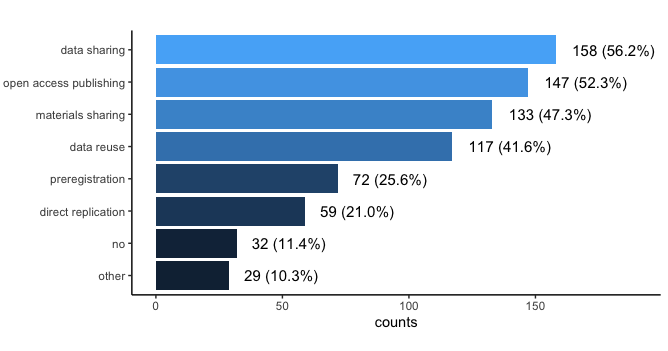
Support
How can we support you to do more open science?

Here is a random selection of “other” responses:
- More funding
- Hire open science support staff
- Acknowledgement of results and not name of journals during job search etc
- Funding of data-storage needs to be arranged
- Provide support and specific instructions for open science practices in each stage of [a] project
- Make sure time is planned for open science work
- I have already possibilities to share code and datasets
- set up central infrastructure
Format
What is your preferred format of information exchange regarding open science practices?
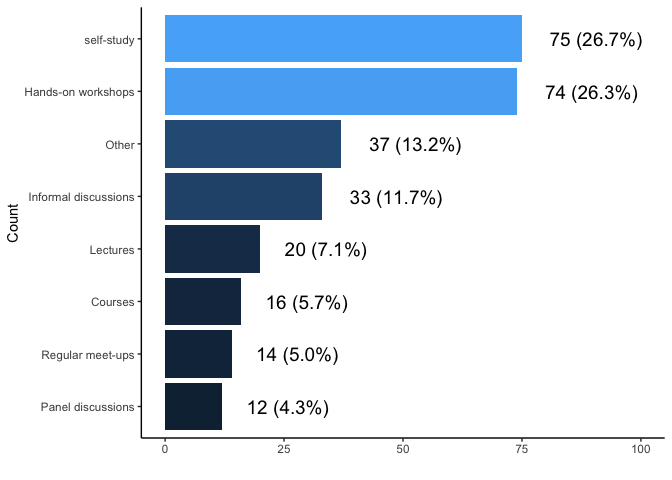
Here is a random selection of “other” responses:
- Manuals
- Short guest lectures. Any of these are probably effective.
- Helpdesk that is available when needed
- An online forum when info and good practices can be shared and people can ask questions